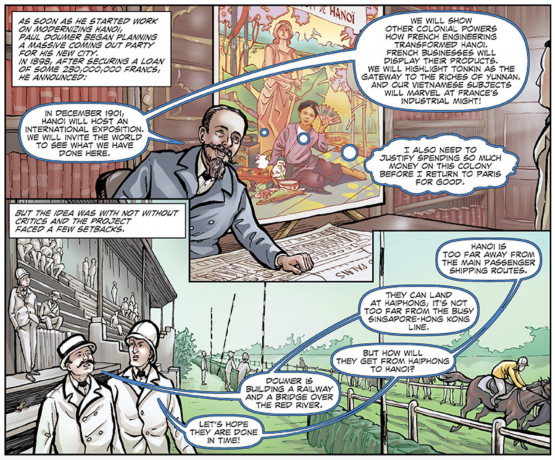What We're Reading This Week

Kristie Flannery
Trevor Getz, "Comics offer radical opportunity to blend scholarship and art", Aeon
Trevor R Getz, History professor and director of the Initiative for Public Humanities at San Francisco State University, discusses how we can create and read comic books (or graphic histories) to tell stories about the past.
Tiger Zhifu Li
Nick Bonyhady, "Jenny Hocking: victor in a dogged pursuit of our missing history", Sydney Morning Herald
Many historians thought her case was a "rank outside chance", given her powerful opponents. But the Monash University professor prevailed.
Shaimaa Khalil, "Aboriginal Australians 'still suffering effects of colonial past'", BBC News
The death of George Floyd in the US has also hit home in Australia. It has brought anger about mass incarceration and police brutality back to the fore in this country.
Jennifer Szalai, Book Review "‘Putin’s People’ Documents the Ruthless and Relentless Reach of Kremlin Corruption", The New York Times
Catherine Belton’s new book argues that Vladimir Putin has presided over the country and its resources like a czar, bolstered by a cadre of friendly oligarchs and secret service agents.
Joseph Satish
Madhulika Banerjee, "Ayurveda and Covid-19: The Politics of Knowledge Systems, Yet Again", Cultural Anthropology
This article suggests that the Covid-19 pandemic has reinvented the terms of discussion surrounding the politics of knowledge systems, here, in the case of Ayurveda.
Lyla Bavadam, "Adivasi revolt that ushered in change for all", Frontline
A commemoration of the Warli Adivasi Revolt that changed the lives of Adivasis and led to the enactment of the Tenancy Act and other democratic reforms in the state of Maharashtra (India), seventy five years ago.
Elizabeth Gibney, "How a small Arab nation built a Mars mission from scratch in six years", Nature
The story of how the United Arab Emirates’ Hope orbiter jump-started science in the country, as the Arab world’s first interplanetary spacecraft.